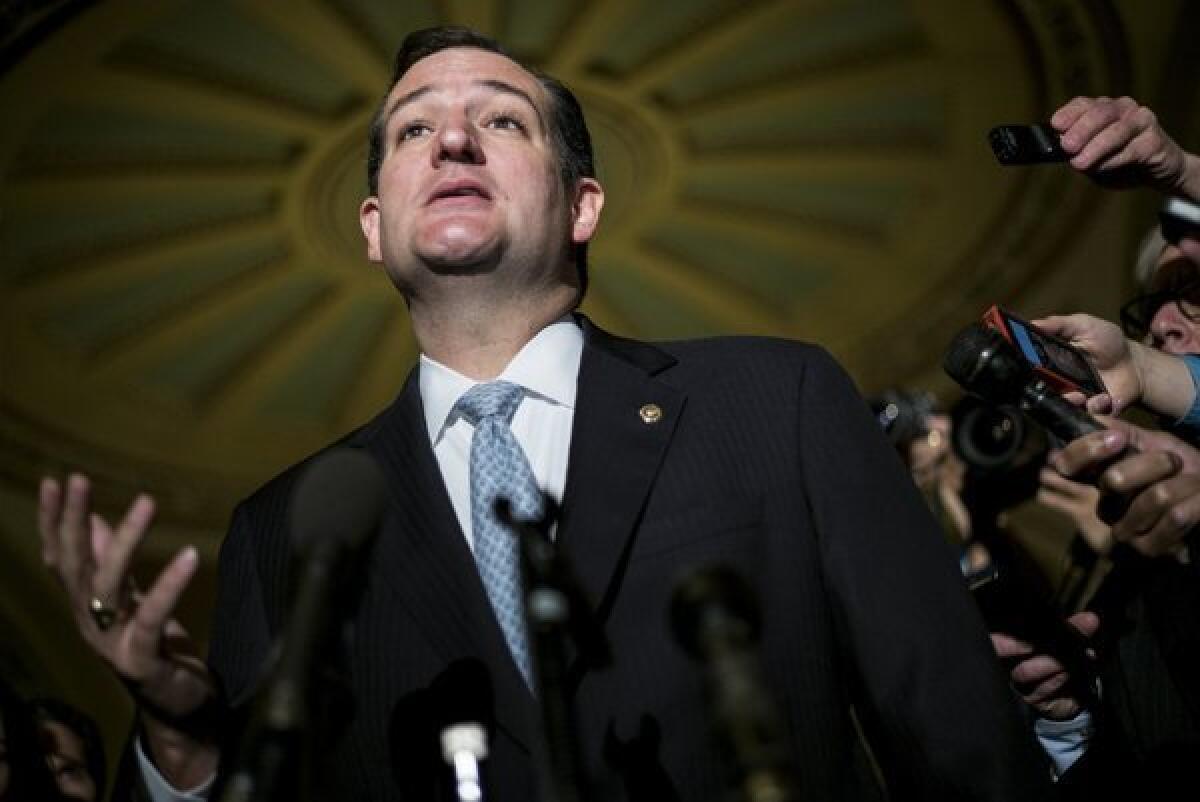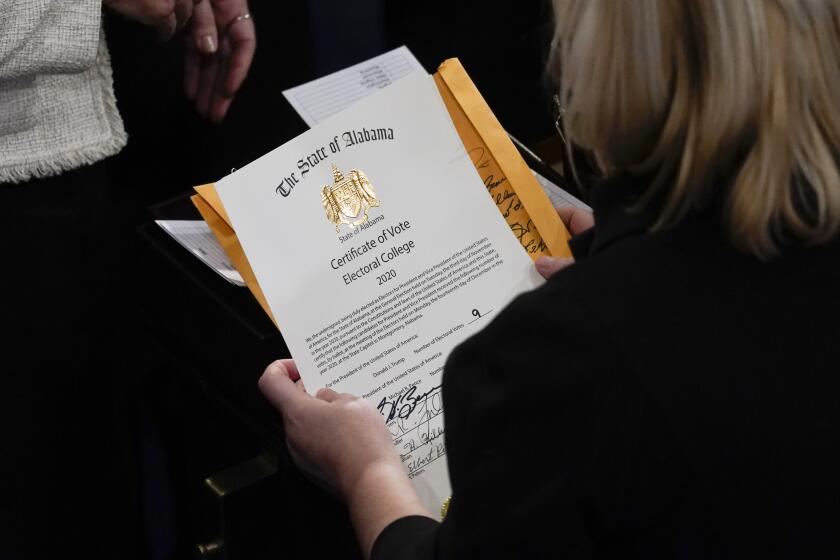Newspaper candidate endorsements: The Ted Cruz conundrum

Back when the Houston Chronicle endorsed GOP candidate Ted Cruz to represent Texas in the U.S. Senate, it largely expressed admiration for his Democratic opponent, whom it seems not to have supported mainly on the grounds that he didn’t have a lot of campaign support and obviously wouldn’t win.
This week, the newspaper has drawn national attention — a mix of praise and scorn — for a new editorial that has been described as a withdrawal of its support for Cruz or a repudiation or rethinking of its previous position. Actually, although the paper expresses regrets that Cruz didn’t follow its advice about how to conduct himself, the editorial board never says it’s sorry to have picked him. In fact, it says it had many reservations about him from the start, though those doubts may have been softpedaled in the original endorsement.
The more interesting point about the Chronicle editorial is the problem that editorial boards, including ours, confront when there isn’t a good candidate out there. What’s the right thing to do? Refuse to endorse because the voters deserve something better?
PHOTOS: Tea party backlash: Protest signs to cheer you up
Here at The Times, our policy is to endorse even when we don’t like any candidate — but to be honest about our misgivings. In fact, our February endorsement for the Los Angeles Unified School Board specifically pointed out our need to be forthright about the shortcomings of incumbent Monica Garcia, who nonetheless won our support:
“We’ll be upfront about this: We consider Garcia a poor choice for the school board, and we always have. In her last reelection bid, we endorsed her only because there were no candidates running against her…. Garcia is a divisive and sometimes careless force on the board who lacks grace and thoughtfulness as its leader. Her positions seem less considered than reactive. Her concerns over whether schools are improving have not extended to underperforming charter schools, and her response when challenged on this is simply unacceptable.”
Gee, if that’s an endorsement, what do we say when we’re opposed to a candidate?
In this case, the board felt the anti-reform candidates were unacceptably knee-jerk in their desire to go back to the days of no accountability. And the one candidate who seemed more thoughtful in her approach nonetheless committed herself to making Supt. John Deasy unemployed if she won. Many disagree with the board about Deasy, but overall we feel that he has done more for the district in a short time than his two predecessors and that his continued presence is more important than that of any single school board member.
Why do we do this: Endorse people about whom we have such strong reservations? Our philosophy is that the voters are as stuck as we are. Someone is going to win; there is no option of just riding this election out without a victor and waiting for someone better to come along. (In some cases, that could be a very long wait.) At least the person elected should be the best of the lot, even if that “best” isn’t good.
Given the lack of an obviously superior candidate, isn’t it all the more important for the editorial board to look closely at each and deliver the best our analysis has found to the readers? (To be sure, a candidate’s chances of winning never factor into our endorsement decisions.)
Or do you, the readers we’re trying to help with our endorsements, disagree? When the field of candidates is uninspiring at best, would you rather sit it out — and have the editorial board do so as well?
ALSO:
Cellphone towers don’t have to mimic Lego trees
More to Read
A cure for the common opinion
Get thought-provoking perspectives with our weekly newsletter.
You may occasionally receive promotional content from the Los Angeles Times.











